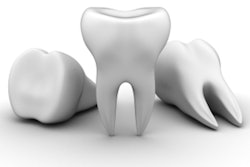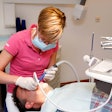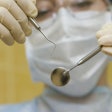
It's an ongoing struggle. How do you get patients with poor oral health to adopt better hygiene habits? Trying something different, researchers examined whether a certain form of cognitive behavioral therapy provided by a psychologist could improve oral health behaviors in young adults with a high caries prevalence.
Researchers in Sweden assigned 135 patients to treatment with acceptance and commitment therapy, a form of cognitive behavioral therapy, or a control group. The intervention group experienced significant improvements in all four dental hygiene activities measured, they reported in BMC Oral Health (October 3, 2018).
"By testing a psychological intervention on young adults (18 to 25 years of age) with a high prevalence of caries, we found an immediate positive effect with improved oral health behaviors," wrote the authors, led by Ulla Wide, PhD, an associate professor of behavioral and community dentistry at the University of Gothenburg Institute of Odontology in Sweden.
A new attitude
Dental practices need effective methods for helping patients with poor oral health to change their behaviors, but research is slim about such interventions for adults affected by caries, the study authors wrote.
“By testing a psychological intervention on young adults with a high prevalence of caries, we found an immediate positive effect with improved oral health behaviors.”
The current study was designed to evaluate the use of acceptance and commitment therapy provided by a psychologist in a general dentistry practice to help young adults with poor oral health make behavioral changes to improve their oral health. Acceptance and commitment therapy treats health problems, including pain and addiction, and has been used in brief forms in primary care settings but not previously tested in general dentistry.
The researchers hypothesized that undergoing a brief intervention would improve toothbrushing, flossing, toothpick use, and additional fluoride use in the young adults more than would receiving standard dental information. The study is part of a larger trial also evaluating the effects of this type of therapy on other factors, such as caries, gingivitis, and sugar consumption.
The researchers recruited individuals who underwent dental exams at two Public Dental Service clinics in Sweden in 2013 and 2014. They required that participants were 18 to 25 years of age, had at least two manifest proximal caries lesions, and had not been diagnosed with certain psychiatric or neuropsychiatric conditions, including depression and psychosis.
All participants received standard oral health information delivered verbally by a registered dental nurse using a brochure on oral health behavior and caries. The investigators then randomized 67 participants to the intervention group, which subsequently underwent acceptance and commitment therapy, and 68 participants to the control group.
They scheduled each intervention group member for two 45-minute-long appointments two weeks apart with one licensed psychologist who provided treatment at the same dental clinic as the initial visit.
The researchers used clinical information for the participants from their dental visits. Participants answered questions about their sociodemographic characteristics, self-rated oral health, and oral health behaviors at baseline, and completed follow-up questions three weeks later. The psychologist and each patient together developed a plan for individualized oral health behavior modification.
At baseline, the intervention group had a mean of 6.3 caries surfaces, and the control group had 4.9. More than 80% of each group reported having poor or fair oral health, with the oral health behaviors of the two groups similar at baseline. Half of the study participants were female and one-third smoked.
However, at the three-week follow-up visit, the intervention group reported significant improvements in the frequency of all four behaviors measured (toothbrushing, flossing, use of toothpicks, and additional use of fluoride), compared with significant improvements in only two behaviors in the control group (flossing and additional use of fluoride).
| Self-reported toothbrushing frequency at baseline & follow-up | ||||
| Baseline | Follow-up | |||
| Frequency | Intervention group (n = 67) |
Control group (n = 68) |
Intervention group (n = 67) |
Control group (n = 68) |
| At least 3 times a day | 1 (1.5%) | 2 (2.9%) | 2 (3.0%) | 3 (4.4%) |
| Twice a day | 37 (55.2%) | 43 (63.2%) | 50 (74.6%) | 46 (67.6%) |
| Once a day | 16 (23.9%) | 13 (19.1%) | 8 (11.9%) | 9 (13.2%) |
| Several times a week | 8 (11.9%) | 9 (13.2%) | 6 (9.0%) | 9 (13.2%) |
| Once a week | 4 (6.0%) | 1 (1.5%) | 1 (1.5%) | 1 (1.5%) |
| More seldom/never | 1 (1.5%) | 0 | 0 | 0 |
"This is a promising result," the authors wrote. "The participants in this study were all affected by severe dental caries disease, and behavioral change was necessary to halt the disease progression and to promote better oral health."
Offering help
Despite these findings, the authors noted some limitations to their study:
- The outcome measures used were self-reported and not objective clinical measurements.
- Double blinding was not possible.
- The study did not include long-terms results.
However, they emphasized that the study was unique in investigating a randomized behavioral intervention in young adults with high caries activity delivered using a licensed psychologist within a general dentistry clinic.
"It may be argued that dental professions need other professionals, such as psychologists, when treating or counseling young adults in order to alter their health behavior related to different oral diseases," the authors concluded.



















